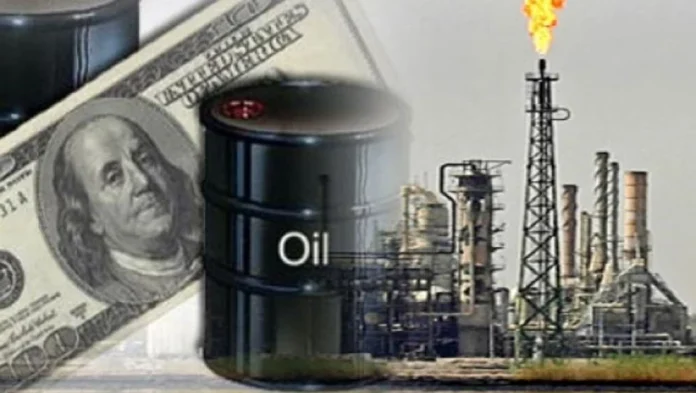According to the findings of a study that was carried out by Bloomberg Intelligence and Bloomberg Economics, it was anticipated that the escalation of the conflict in the region and its transformation into a direct war between Israel and Iran would result in an increase in oil prices to $150 per barrel and a decrease of one trillion dollars in global gross product.
The review said that the effect of the contention on the worldwide economy stays restricted until this second.
The new review, called “Energy Situations in the Center East,” analyzes four situations for struggle and its possible effect on worldwide Gross domestic product and expansion. These situations incorporate a progressing truce, through restricted struggle, and a multi-front intermediary war, the whole way to a bigger conflict that will observer… An immediate struggle broke out among Israel and Iran, as per what was accounted for by the Middle Easterner =.
Remarking on the report, Ziad Dawoud, head developing business sectors financial expert at Bloomberg Financial matters and co-creator of the report, said, “The fundamental situation includes the conflict remaining to a great extent restricted, as it has been since October, with a restricted effect on the worldwide economy, yet this could change.” A situation including a drawn out struggle could prompt a worldwide downturn that would cut around a trillion bucks from worldwide Gross domestic product, as well as higher oil costs and lower spirit, which would prompt a decrease in development to 1.7%.
He added, “except for the long stretches of the worldwide monetary emergency and the pandemic, the worldwide economy will encounter its most terrible development beginning around 1982, or at least, when the Central bank raised loan fees to contain expansion coming about because of the oil shock during the 1970s.”
“The global economy is still recovering from the inflation cycle that was exacerbated by the Russian invasion of Ukraine in 2022, and another conflict in a region of great importance in the field of energy production may lead to a significant increase in inflation to reach about 7%, as the Federal Reserve’s goal of… Keeping inflation at 2% is out of reach, and rising gasoline prices in the United States of America will represent an obstacle to President Joe Biden’s re-election campaign,” he stated.
According to Bloomberg Intelligence, the statement went on to state that “a major disruption in production in the Gulf region, which produces about 20% of the world’s oil, or a disruption in oil transportation in the most dangerous scenarios – such as the possible closure of the Strait of Hormuz – could cause a shift in OPEC+ policy and push it to adopt the maximum… Production.”
For this situation, the abundance creation limit in Saudi Arabia, the UAE and Kuwait will turn into “unessential” assuming the waterway is shut.
“OPEC Plus members that have a surplus of energy, such as Russia and Kazakhstan, will benefit, as they will have the opportunity to maximize production at higher prices to compensate for the decline in oil production in the Gulf countries,” said Salih Yilmaz, Senior Oil Analyst at Bloomberg Intelligence and co-author of the report. The US will probably need to tap its essential oil save to compensate for a portion of the shortage and cutoff the effect on buyer costs.”
Other clash situations incorporate the episode of an intermediary war that could push a barrel of oil towards $100 a barrel. As per this situation, an intermediary battle among Iran and Israel (through intermediaries in nations like Lebanon and Syria) might be less disastrous than an immediate conflict, however it might cost the worldwide economy up to $300 billion, and will prompt an ascent in costs by about $10 per barrel, and a decrease in financial backer certainty. . With the exception of 2008 and 2020, this could result in a 0.3% decline in global growth in 2024, making it the weakest growth in three decades.
The study also stated that a third scenario suggests that the margins of current geopolitical risks appear to be weak, so the potential ceasefire’s impact on oil prices will remain limited.
He added that 92% of the 143 respondents to a recent Bloomberg Intelligence survey stated that a geopolitical risk margin of less than $5 per barrel is linked to market prices.





